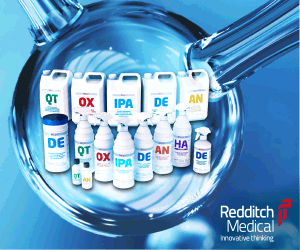NY State hospital ready for Ebola fight with Bioquell robots
With Ebola cases reaching the USA, the public has become more conscious about infectious diseases and infection control
With Ebola cases reaching the USA, the public has become more conscious about infectious diseases and infection control. Hospitals face the challenge of infection prevention on a daily basis. While some are in the process of setting up Ebola preparedness protocols, some like the Rome Memorial Hospital, New York, are already fully equipped to handle a case should it present itself.
Rome Memorial already uses Bioquell’s hydrogen peroxide vapour (HPV) technology to fight more common infections. Leanna Grace with the infection prevention team at the Rome hospital says: 'That's part of our plan. When the patient leaves here the room has to be cleaned first. We'd have people in special protective equipment to clean the room and then we would put the Bioquell [robot in] and it would take care of whatever might be lingering.'
Bioquell’s HPV technology is the solution of choice for the decontamination of rooms, ambulances and other items of equipment that have been in contact with Ebola patients. HPV is recommended in many Ebola preparedness protocols as it has robust and documented proof about its ability to eradicate a wide variety of pathogens to a 99.9999% reduction.
Bioquell room bio-decontamination service (RBDS) has intervened on many Ebola cases around the world and many hospitals have invested in the technology for themselves. They use it every day to prevent the spread of other more common pathogens such as CPE, C.difficle or norovirus.
Bioquell’s hydrogen peroxide vapour is the gold standard for efficacy. Numerous studies with prestigious institutions such as Johns Hopkins and Yale have shown Bioquell HPV reduces infection rates for spore-forming pathogens. Speaking about the Bioquell process, Leanna Grace explains: 'We did cultures before they did it and we did cultures after. We had positive cultures before and when we did them after, they were all negative except one, where we had done a little bit of dirt. Normally, you can't sterilise through any kind of [solid/dirt] matter.





